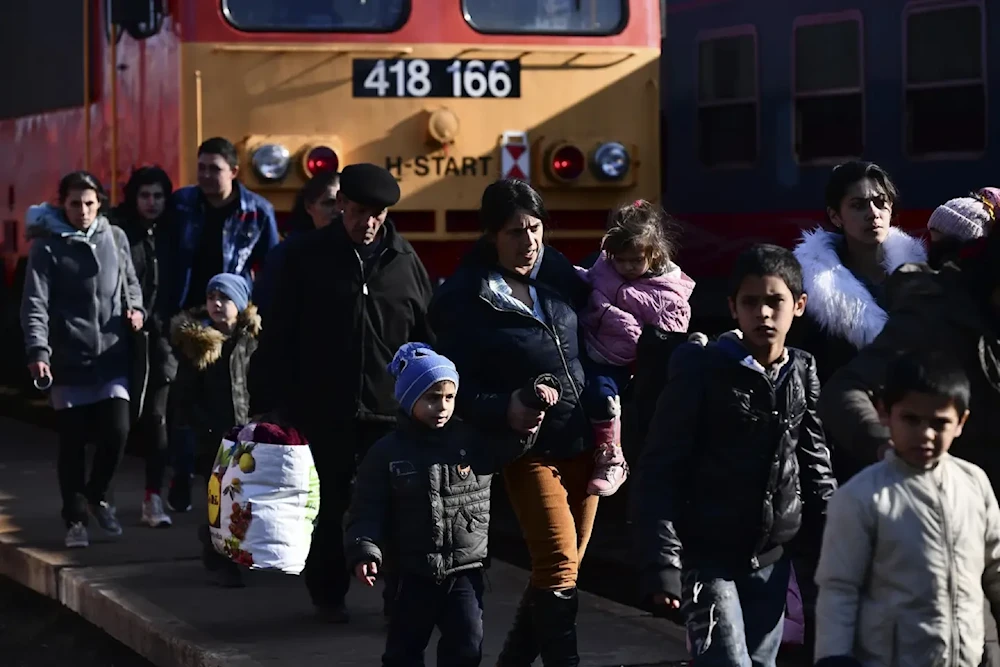Homelessness reaches record highs among Ukrainians at home, abroad
Homeless figures among Ukrainians, whether in Ukraine or in other European countries, are reaching record highs as the war rages on.
-

Ukrainian Refugees arrive in Zahony, Hungary, photographed on February 27, 2022. (AP)
The ongoing Ukraine war has led to starkly high homelessness rates, a recent report by charity Depaul International found, saying they had found that nearly a quarter of individuals who are homeless or are in emergency shelters have been displaced by the ongoing war, as reported by The Guardian.
While the precise number of homeless people in Ukraine remains unclear, the charity surveyed over 200 individuals living on the streets or in temporary shelters.
Over 3.5 million people are internally displaced. Additionally, 6.2 million Ukrainian refugees scattered across Europe face the growing threat of homelessness.
In a report published earlier this year, the United Nations stated that two million homes had been destroyed or damaged since the onset of the war. In Pokrovsk alone, about 20,000 residents were evacuated in the past month due to escalating hostilities.
69% of homeless are men
Of those interviewed by Depaul, 69% were men, with almost half aged between 18 and 45. Former prisoners are particularly at risk, comprising 31% of the homeless individuals surveyed.
In contrast, women and children receive more assistance through public shelters, international aid, and the ability to seek refuge abroad, while male Ukrainians aged 18 to 60 are barred from leaving Ukraine due to wartime conscription laws.
In Kiev, there is just one government-run homeless shelter serving central Ukraine. Strict rules at such shelters often result in single men or those with addiction issues being turned away.
As the war nears its third year, support for the millions of Ukrainian refugees across Europe is dwindling, heightening their risk of homelessness. In Hungary, the government has stopped housing assistance for thousands of Ukrainian refugees, deeming certain western regions of Ukraine safe for return.
The situation is similar in the United Kingdom, where more than 9,000 Ukrainian refugee households face homelessness due to a shortage of host families and inadequate local support. Across Europe, refugees encounter bureaucratic obstacles that prevent them from accessing protections guaranteed by EU law.
Poland, initially allowing in nearly a million Ukrainian refugees, has seen public sentiment shift as concerns over social benefits rise. This month, Polish officials called for an end to EU benefits for men of fighting age, claiming the incentives encouraged draft dodging in Ukraine.

 3 Min Read
3 Min Read









